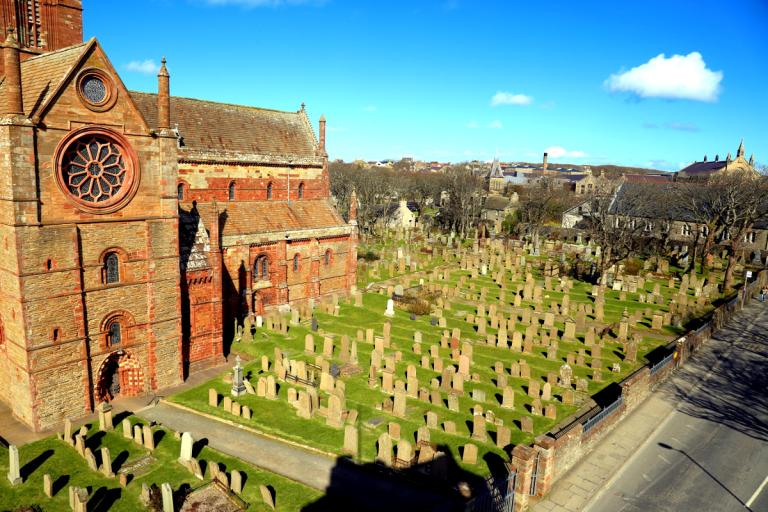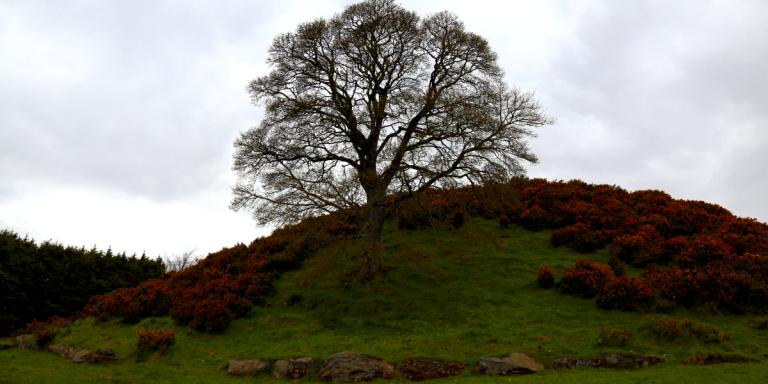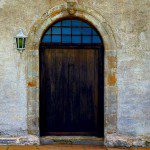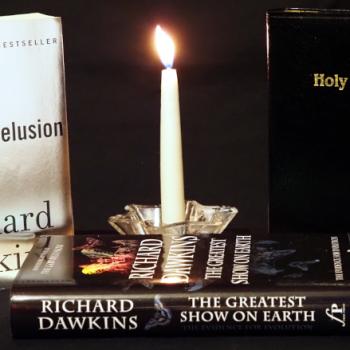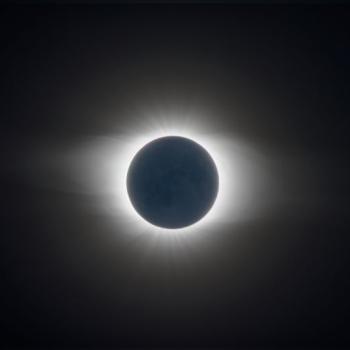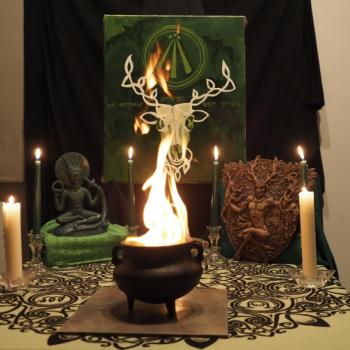A friend and fellow Pagan priest recently came across this quote at a local hospital:
What we have done for ourselves alone dies with us; what we have done for others and the world remains and is immortal. – Albert Pike, American Freemason
It’s a beautiful quote and its place outside a hospital is very appropriate. But while it is clearly true (the second half, at least), it raises the question of whether that’s the only form of immortality.
There are those who believe the contemplation of immortality is a colossal waste of time. All we know for sure is that we have this one life. Surely we should focus our attention on making it the most we can and worry about what comes next when this life is done.
Yet to be human is to live with the realization that we are alive but some day we will die. Life will go on for those who remain – until their time also comes – but we will be gone.
We mostly live with this certainty by ignoring it. But for those of us who are mindful of such things, we wonder: will we really cease to exist? Or will we live on, in one form or another? Philosophers, theologians, and ordinary people have contemplated this question for at least as long as we’ve been human. There are many answers, some of which are more likely than others.
As for me, I see three forms of immortality.
The Immortality of our Deeds
This is what Albert Pike was talking about – what we do lives on after us. Pike achieved this form of immortality – he was an extremely influential figure in American Freemasonry, especially within the Scottish Rite. The very wealthy have long endowed education and the arts, looking to have their names attached to beneficial institutions that live on for centuries after them. This past fall we were reminded of the deeds of the women who won the right to vote and Susan B. Anthony’s grave became a shrine. Ross Nichols and Isaac Bonewits live on in me and in many other contemporary Druids.
It is not only what we have done for others that remains. Shakespeare’s Mark Antony said “the evil that men do lives after them; the good is oft interred with their bones.” Pike achieved this form of immortality as well. He fought for the Confederacy and threatened to leave Freemasonry rather than accept black men as brothers. Jack the Ripper appears to be immortal – I hope the far-more-deadly 20th and 21st century mass murderers fade into obscurity instead.
We need not be famous – or infamous – to live on in our deeds. Rich men’s names may be on the buildings, but carpenters and stonemasons live on in the structures built by their labor. Parents and teachers live on in the children who learn from them.
Our world is more interconnected than we can imagine. Every day our lives touch the lives of others, impacting and influencing them in ways that are sometimes unnoticeable and sometimes overwhelming. Those impacts and influences will remain long after we have moved on to whatever comes next.
Our deeds make us immortal.
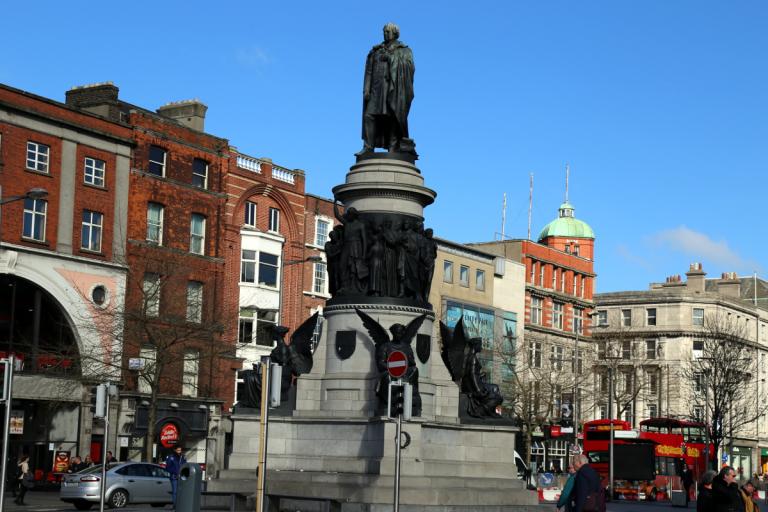
The Immortality of our Families
We will die, but our blood kin will go on. Even if – like me – we leave no physical offspring, we have nieces and nephews and cousins of various degrees and levels of removal. Our families of blood continue.
So do our families of choice: our networks of close friends, our social and political organizations, and especially our religious communities. Ross Nichols lives on in OBOD and Isaac Bonewits lives on in ADF.
This is not the same as the immortality of our deeds. We do not live on in our families because we were influential or even because we were loved. We live on in our families because we were a part of them, and the whole continues even if a part of it dies.
This is a difficult concept for modern Westerners whose sense of identity rests firmly in the individual and not in the group. The liberal Christian theologian Paul Tillich called this “the courage to be as a part.” He said “it is the participation in something which transcends death, namely the collective, and through it, in being-itself” (The Courage to Be, 1952).
What if your family line dies out? Just remember that if you go back far enough, every living person is related (and for that matter, so is every living creature). Your name may die, but your family continues.
Because our families live on, we are immortal.
The Immortality of our Souls
The first two forms of immortality require no religious beliefs, just a way of thinking that is bigger than ourselves. But when most people talk about immortality they’re thinking of the immortality of themselves as individuals. Call it consciousness, call it the soul – whatever it is that makes you you. Does it live on?
The only completely honest answer is that we don’t know. If you have examined the evidence and have come to the conclusion that it does not, or that the question is unimportant, know that I respect your beliefs. But I have come to a different conclusion.
We see the concept of life after death in almost every culture and tradition. We see it in the earliest human burials with grave goods – why would people who had almost nothing bury useful objects with the dead unless they were sure the dead would need them? We see it in the tomb-shrines of Northwestern Europe and in the pyramids of Egypt. We see it in the beliefs and practices of many of the world’s remaining tribal cultures, and in the beliefs and practices of our friends and neighbors. Perhaps this near-universal belief simply reflects a near-universal fear of death and non-existence. For me, though, it’s one more reason why I believe we live on.
There are near death experiences and past life memories. Yes, there are “rational” explanations for them, and some of those explanations are probably true. But some experiences defy rationalization.
I’ve had my own past life experiences. Some were part of a deliberate attempt to remember, while others came spontaneously. I have no way of knowing if these memories are authentic or if they’re imagined, but they feel right, and they go a long way in explaining why I am the way I am. So as with so much else that can’t be proved one way or the other, I order my life as though the memories are authentic, even though I can’t be sure.
I’ve also had other, more powerful spiritual experiences. These have been so real and they’ve happened enough times even I can’t be skeptical about them any more. They have not specifically addressed the form that the immortality of the soul takes (Otherworld? Reincarnation? Some combination of the two?), but I am completely convinced there is more to Life than the material world, and that the soul – whatever that is – never dies.
I cannot prove this to you. I can only tell you what I’ve done, and what others like me have done. Experiences like this come in their own time and not when we demand them, and even then it is up to us to interpret them authentically.
But I’m convinced our souls are immortal.
This we know: all that lives will someday die
The time to contemplate death and what comes afterwards is not when we are old and sick and death is imminent. These things are best contemplated on a beautiful Spring day when you are healthy and all is right in the world, or at least in your little corner of it. So let us consider immortality and the forms it might take.
This we know: our deeds make us immortal.
This we know: because our families live on, we are immortal.
If that’s enough for you, I’m happy for you. Seriously – if you’re good with that, it makes your life a lot simpler. If that’s as far as your worldview will allow you to go, I respect your choices.
But this I know: my soul will live on.


